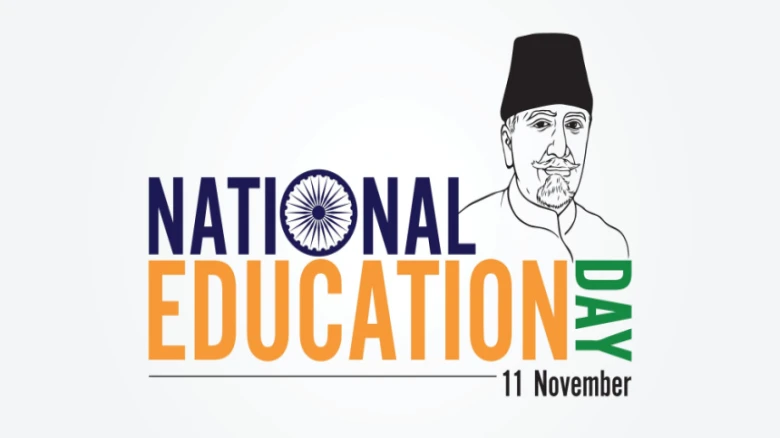Regional

Digital Desk: India celebrates National Education Day on November 11
every year. National Education Day is observed in India on November 11 each
year to commemorate Maulana Abul Kalam Azad, who served as the country's first
education minister following independence.
In 1992, he received the posthumous Bharat Ratna, India's highest
civilian honour.
The purpose of the day is to
honour Maulana Abul Kalam Azad's contributions to the field of education while
serving as the country's minister of education. He was chosen to serve on the
foundation committee in 1920 to create Jamia Millia Islamia in Aligarh, Uttar
Pradesh. In 1934, he also helped move the university's campus from Aligarh to
New Delhi. Today, the campus's main entrance bears his name.
2022's National Education Day Theme:
To recognise and honour Maulana Azad's contribution to the nation's
educational system, this day is observed. "Changing Course, Transforming
Education" will be the topic for National Education Day in 2022.
2022 National Education Day:
Importance
The purpose of National
Education Day is to improve and advance the country's educational system for
students. The day also honours Azad's role in creating the framework for a free
Indian educational system. Azad was a fervent supporter of free compulsory education
for all children under the age of 14, universal primary education, girls'
education, vocational training, and technical education.
Maulana Abul Kalam Azad was a Saudi
Arabian immigrant who was born in Mecca in 1888. Azad's father, Maulana
Khairuddin, was a Bengali Muslim with Afghan ancestry who arrived in Arab
during the Sepoy Mutiny and afterwards travelled to Mecca and stayed there. His
mother was an Arab and the daughter of Sheikh Mohammad Zaher Watri. When Abul
Kalam was two years old in 1890, he returned to Calcutta with his family.
The contributions
made by Maulana Abul Kalam Azad to education, nation-building, and
institution-building are unparalleled.
Kalam Ghulam
Muhiyuddin Ahmed bin Khairuddin Al-Hussaini Azad was a prominent member of the
Indian National Congress and a proponent of Indian independence. He was also a
writer.
He was appointed as the first Minister of Education in the Indian
government following the country's independence. He was minister of education
from August 15, 1947, to February 2, 1958, when he passed away in Delhi.
education of girls and the disadvantaged in rural areas. He also placed a
strong emphasis on adult literacy, universal primary education, which is free
and required for all children up to the age of 14, as well as the
diversification of secondary education and vocational training. Additionally,
he was in charge of setting up the University of Delhi's Department of
Education, the first Indian Institute of Technology in 1951, and the University
Grants Commission in 1953.
Leave A Comment